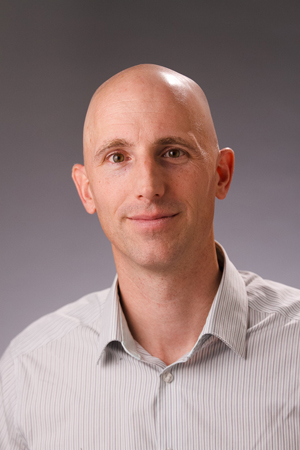Faculty Profile
Thomas Arnold
Professor of Biology; Walter E. Beach '56 Chair in Sustainability Studies (2003)Contact Information
Rector North
717-245-1319
http://blogs.dickinson.edu/arnoldt/
Bio
Dr. Arnold is a broadly-trained biochemist who studies natural products produced by marine organisms and terrestrial plants exposed to stress, including stress caused by changing climates, grazing, or infection. His research focuses on plant sugar metabolism and transport, polyphenolic metabolism, glucosinolate production, and the occurrence of natural epigenetic regulators which exhibit promising medical properties. He is especially interested in molecules synthesized by organisms living in coral reefs, seagrass meadows, and temperate forests. He has been awarded research grants from the National Science Foundation, the Smithsonian Institution, and NASA. His work has been published in a variety of journals, often with undergraduate co-authors. He has over 20 years of experience as a science educator and mentor of undergraduate researchers. He teaches courses in biochemistry and metabolism, physiology, and ecological physiology as well as climate science. He founded the Dickinson Global Scholar Study Abroad program, and led its first semester-long program in Brisbane, Australia. He has been awarded course innovation grants from the National Science Foundation, among others. Over one hundred students have been trained in his laboratory and through these research programs. Dr. Arnold is an avid SCUBA diver and enjoys spending time near saltwater, in Chesapeake Bay tidal marshes, and on small boats. He is an advocate for Alzheimer's disease research.
Education
- B.A., St. Mary's College of Maryland, 1993
- Ph.D., University of Delaware, 1998
2025-2026 Academic Year
Spring 2026
BIOL 343 Metabolism
A survey of the metabolic processes in animals and plants, including signal transduction, aerobic and anaerobic respiration, and photosynthesis, as well as the biosynthesis of the major types of biomolecules. For each metabolic pathway, we will examine the regulation of enzymes and related genes, their energetic requirements, and the function of pathway end products. Both the normal functioning of metabolic pathways and common metabolic malfunctions, e.g., human inborn errors of metabolism, will be considered. Selected readings from the primary literature and the popular press are required. Students will complete detailed case studies focusing on human metabolism and metabolic disorders.
Three hours classroom a week. Prerequisite: CHEM 242.
BCMB 560 Stu/Faculty Collaborative Rsch
Student/Faculty Collaborative Research allows a student to conduct original research in close partnership with faculty collaborator(s). The project should be designed as an investigation yielding novel results that contribute to the area of study. With the faculty collaborator(s), students will develop the project and participate in all aspects fo the reasearch. It is expected that the faculty member will work closely with the student for at least half of the time the student is pursuing the research. The final project must be presented to the faculty collaborator(s) no later than one week prior to the end of the evaluation period. The course will typically earn one half or one full course credit per semester.
BIOL 560 Stu/Faculty Collaborative Rsch
